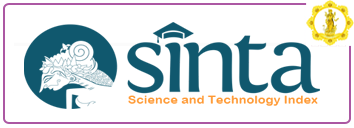Goak Maling Taluh Sebagai Media Mengembangkan Interaksi Sosial dan Menguatkan Bahasa Bali Pada Anak Usia Dini di TK Insan Prestasi Denpasar
DOI:
https://doi.org/10.25078/ds.v5i1.4832Keywords:
Goak Maling Taluh, social interaction, Balinese Language, early childhood, traditional gamesAbstract
This study explores the potential of the traditional Balinese game Goak Maling Taluh as an effective medium for enhancing social interaction and promoting the use of the Balinese language among early childhood learners at TK Insan Prestasi, Denpasar. Adopting a qualitative descriptive method, data were collected through direct observation, document analysis, and online tracking to ensure data richness and validity. Grounded in Vygotsky’s socio-cultural development theory and Jean Piaget’s theory of language development, this study emphasizes the interrelationship between language acquisition and cognitive growth during the preoperational stage of childhood development.
The findings indicate that Goak Maling Taluh significantly fosters verbal expression, cooperation, and the acquisition of basic Balinese vocabulary among young learners. Moreover, the game serves not only as an engaging and age-appropriate educational tool but also as a means of preserving local linguistic heritage. Thus, integrating traditional games like Goak Maling Taluh into early childhood education holds strong potential for supporting both social development and cultural sustainability.









